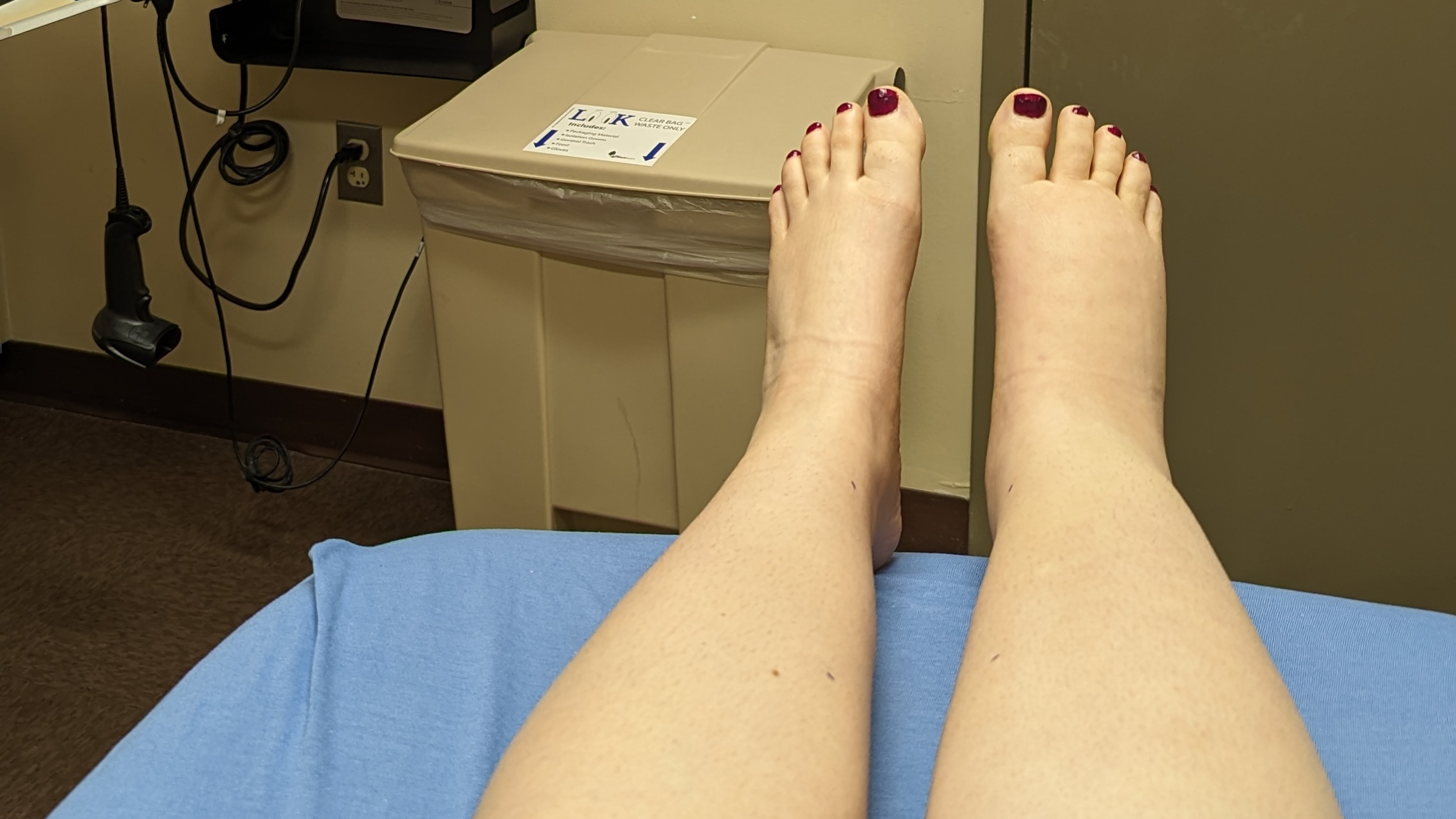This post is part of a three-part conversation series with Dr. Sheri Prentiss, founder and president of the LIVE Today Foundation, and Richard Carreon, managing director and CEO of ImpediMed. Together they discuss their collaboration to improve the treatment, therapy, and prevention of cancer-related lymphedema.
For the better part of the last twenty years, Richard Carreon has worked in the medical device industry.
Most of that time was with Medtronic, the company that developed the first battery-powered external pacemaker. Carreon felt fortunate to be involved with a company truly centered on the patient: everything he did there focused on either lifesaving or life-changing devices, and he loved it.
Now, Carreon is the managing director and chief executive officer of ImpediMed, a global company that designs and manufactures medical devices employing bioimpedance spectroscopy technologies.
Carreon had the opportunity to come to ImpediMed after a discussion with Dr. Leigh Ward, a professor at The University of Queensland School of Chemistry of Molecular Biosciences. Dr. Ward developed bioimpedance spectroscopy technology for lymphedema, which assesses extracellular and intracellular fluid volumes.
“Dr. Ward convinced me that bioimpedance spectroscopy could change medicine and positively impact the lives of millions of patients and their loved ones,” remembers Carreon.
“I had seen a lot of medical devices over my time, but I had never seen somebody who was so dedicated and had such a vision for the future.”
So when Carreon was offered the opportunity to come to ImpediMed and work specifically with this technology, he jumped at the chance.
“Here we are today, starting to change lives.”
Definitions
Bioimpedance spectroscopy (BIS) technology: A non-invasive technology that assesses a patient’s fluid levels and tissue composition. Bioimpedance measurements are taken by sending a painless electrical current through the body and measuring its resistance and reactance to this electrical current.
L-Dex® score: The L-Dex score represents the difference in the amount of extracellular fluid in an at-risk limb compared to an unaffected limb. An L-Dex increase of 6.5 or more over a pre-treatment baseline indicates that cancer-related lymphedema is developing, and intervention is needed.
SOZO®: A digital health platform that incorporates L-Dex technology to aid in the assessment of secondary lymphedema. It delivers a precise snapshot of fluid status and tissue composition in less than 30 seconds.
Lymphedema Prevention Program: A comprehensive program to test patients at risk of cancer-related lymphedema in order to detect it early enough to intervene and prevent the development of chronic lymphedema.
Text adapted from impedimed.com.
What is bioimpedance spectroscopy?
Traditionally, the standard for measuring differences in limb circumference is to use a tape measure or water displacement (also known as a volumetric bath). These methods, however, can sometimes be inaccurate: because the measurements are not specific to fluid changes, changes in muscle or fat can be misconstrued as fluid build-up. There’s also an element of human error, as different people have different measuring techniques.
On the other hand, bioimpedance spectroscopy captures an objective measurement of a patient’s fluid levels and tissue composition by sending a low-level electrical signal through the body.
Using this technology, ImpediMed’s new digital health platform can detect small amounts of lymphatic fluid building up in the limbs. “In fact, as little as two and a half tablespoons,” clarifies Carreon. “That’s before you can see it, before a patient can feel it.”
ImpediMed’s newest device is called SOZO, derived from a Greek word that means “to heal.” The FDA-cleared device measures 256 unique data points over a broad spectrum of frequencies to provide a detailed fluid and tissue analysis. It’s an accurate, quick, and non-invasive way to identify subclinical lymphedema.

“This technology is very sophisticated but very simple to use,” explains Carreon. “You just place your bare hands and feet on the device, and in less than thirty seconds, it takes a reading and provides the care team with a status of the fluid build-up in your limbs.”
It’s pretty extraordinary, especially when considering how the SOZO’s predecessor took tens of minutes to complete the same process.
“The earlier you can detect a chronic disease and effectively treat it, the better the outcomes are going to be,” says Carreon.

Breast Cancer and Lymphedema: Supported by Clinical Data
A recent study published in Breast Cancer Research and Treatment details how effective bioimpedance spectroscopy is at monitoring the progression of breast cancer-related lymphedema when compared to circumferential measurements, such as a tape measure.
The study was a meta-analysis of fifty studies and more than 67,000 breast cancer patients. It found that routine monitoring for early detection of lymphedema using ImpediMed’s L-Dex technology combined with early intervention cuts the relative rate of chronic breast cancer-related lymphedema by as much as 81%.
“That’s huge, especially given the fact that one out of every three cancer survivors will develop lymphedema,” Carreon says. “So an 81% reduction would be significant. It is significant.”
It’s not just beneficial for breast cancer patients either, says Carreon. “The studies have all focused on breast cancer because that’s where the company started its journey,” he explains. “But really, if you take any cancer – gynecological cancers, prostate cancers, melanoma – they have a risk of developing lymphedema, some as high as 50%.
“Anything that causes lymphedema during their cancer treatment is really what we’re focused on,” he continues.
Treatment: Test, Trigger, and TreatTM
“There are physicians today who still don’t believe that their cancer treatment can cause lymphedema,” says Carreon. “And then a vast majority of cancer patients don’t learn about lymphedema until after they’re going through their treatment.”
To combat this, ImpediMed introduced a comprehensive Lymphedema Prevention Program (LPP) specifically designed to educate healthcare workers and patients on the protocols necessary to reduce lymphedema.
“We want to be able to detect it early, and we want to be able to manage it before it becomes this debilitating, life-long chronic condition,” explains Carreon. “So we utilize a program that we’ve trademarked: Test, Trigger, Treat.”

The LPP program is three simple steps:
- Test. The cancer center uses SOZO technology to routinely test their patients for the onset of lymphedema.
- Trigger. If the data shows that the patient has an increasing amount of lymphatic fluid, early intervention is triggered.
- Treat. The patient is treated with compression therapy or as directed by their care team.
“Our job is to go out and train these hospitals to set up these comprehensive programs,” says Carreon.
“If we can detect lymphedema early and treat it with a compression sleeve, we can stop the progression or even reverse the number of cases.”




Leave a Reply to George/Yvonne BirdsCancel reply